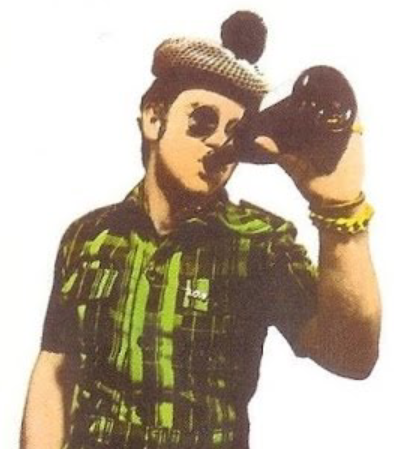I’ve been curious how many working researchers we’ve got in this community, and what you all do!
If you’re working in science (physical or social), engineering, etc in a research capacity, give a shout in the comments and let us know what you work on! Same goes for students and amateur scientists at any level. (And by amateur I mean those of you who are working on your own experiments but just not being paid for it / not working on a degree; I’m upset that “amateur” has a negative connotation, it shouldn’t.)
I’m currently a PhD candidate, working on transmission electron microscopy and electronic materials (mainly ferroelectrics). In the past I’ve been involved in research / product development in a few different industries, including medical devices, aerogels, and materials for RF devices.
I’m a PhD candidate too - my contract is finished now, but I am still writing my thesis. So I am currently at the awkward intersection of finishing a thesis and looking for a job.
My PhD focus is in applying time-resolved spectroscopic techniques to study the excited state dynamics of molecules. Basically, these are experiments in which a pulsed laser is used to excite the sample and a second probe light is used to measure a change in the absorption in response to the light. By measuring these changes in the absorption as a function of time, and applying quantum chemical methods to calculate the spectra of potential intermediates, one can sort of recreate a molecular movie of what the molecule is doing after it absorbs light with a time resolution of femto to picoseconds. The materials that I study are organic dyes that are useful for microscopy, as well as molecules that respond to EUV light for applications in photonanolithography (for making the very small transistors in computer chips).
I am also an “amateur” scientist when it comes to biology, as many of my hobbies are nature-based and it’s not like I can turn off the science bug when it comes to hobbies.
Well that’s fascinating! The technique sounds a little bit like a cross between Raman and EXAFS/XANES? (Probably just because those are two techniques I happen to be familiar with though.)
I’m a research professor of neurology, and my research focuses on developing novel cognitive assessments for measuring early-stage Alzheimer’s disease and other types of dementia.
That’s a field where it seems (to an outsider) like a lot has been happening recently! Glad to have you here!
You’d be correct! The new anti-amyloid drugs are very exciting, and it makes my work on preclinical Alzheimer’s even more fulfilling as it can have a real impact on getting people tested and treated as early as possible.
working in a cultivated meat startup, msc in biotechnology, but now disillusioned and wanting to do something academic/more down to earth and helpful
If it’s not too personal, may I ask what lead to your disillusionment with the field? “Lab grown” meat (assuming that’s what you mean by cultivated) has seemed like a promising idea to me for a while, in terms of environmental impact and the ethical consideration of animals.
That doesn’t feel helpful to you?
no, the technology is underdeveloped, and very resource intensive. I don’t think it is a viable alternative at all. Better to just eat what grows from the ground than spend so much time, money, energy forcing cells that don’t want to grow in such an artificial environment. I’ve also started to notice how it seems to be quite tied to EA and longtermism crowd, who are investing in it a lot.
True. It could still have benefits from a vegetarian or conservation perspective, though.
Have you thought about trying to get into genetically modified plant crops, then?
I did consider it yes, but those companies are evil too, they make a farmer reliant on a super crop that can’t produce its own seeds, and then make a mint by selling them seeds every year.
PhD in Geology. Now am a research scientist working in more general materials science/chemistry/gas adsorption. My thesis was on lunar petrology where I studied Apollo 16 samples. My current research is much less exciting. Haven’t touched a rock in ages and my geologist heart hurts from it haha
Dang we gotta get you some cool rocks!
(I’ve always kinda wanted to thinly section some rocks with nice big grains and put them in the TEM; so many natural minerals have really interesting crystal structures!)
It’s science-y enough but I’m definitely not considered a scientist so much as a technologist. I work as a MRI (Magnetic Resonance Imaging) Technologist. Previously a X-Ray Technologist.
My machine does all the science for me but it’s a pretty neat concept. Using magnetic gradients and RF pulses at hydrogen protons to acquire accurate digital imaging.
Happy to have you! The science behind MRI is fascinating, and the machines themselves are really cool. Have you ever seen a magnet quench? I don’t think they’re really supposed to happen during normal operation, but some of the videos I’ve seen have been rather dramatic.
It is pretty crazy people were able to figure that all out and we are able obtain crazy detailed pictures without radiation.
No I haven’t seen it! Hoping to see a controlled quench someday but also hoping to avoid needing to use it in any emergency situations; it’ll have to be a damn near life/death situation to hit that button. Very costly decision. I guess there’s also a dwindling supply of helium in the world so that could get interesting as time goes on.
Yeah, helium being a finite resource was something that really surprised me when I first learned about it! Better to keep it inside the MRI as much as possible for sure
helium recovery and recycling has come a long way, and the costs of helium are now justifying the extra expense of the hardware, so I think that problem should abate somewhat in the coming years.
I’m a professor of chemistry, I mainly do organometallic research but we’ve been branching out into other areas.
Very cool! My only experience with organometallics is with CVD and related technologies (like we’ve got one machine we use called a FIB – focused ion beam – that uses an organometallic as a carrier for platinum deposited as part of the process). Mainly I think of them as “probably toxic, probably pyrophoric, treat with extreme caution” sorts of chemicals.
@sensibilidades @realChem MOFs are hot
I’m a software developer who works on Backend/APIs/Cloud/AI.
Currently browsing Lemmy instead of actually doing work in my home office…
Currently browsing Lemmy instead of actually doing work in my home office…
Some days just turn out that way lol
I’m an associate professor in computer science, currently working on stochastic algorithms (like genetic algorithms).
Until now, I’ve been working on quite abstract optimization problems, but I’d like to switch to more useful applications, like social inequalities or climate change.
I get that. Working on a more abstract problem should, in theory, help solve more practical problems down the line, but sometimes it just feels less satisfying that working on something where you can see the real world application and (hopefully) results. I’m definitely looking to do something practical with my experience once I’m finished with my PhD.
I’m working on my Astrophysics PhD. I study “galactic cannibalism” aka how galaxies grow and change by eating smaller galaxies. My big focus is on teaching and outreach though rather than research.
Cool! Is this the kind of thing that’s going to happen between Andromeda and the Milky-way, or is that fundamentally different because they’re more similar in size?
Yep, MW and Andromeda merger will be a “major merger” that will have huge effects on both galaxies. The ones I work with are small (“dwarf”) galaxies that have a much smaller effect on the big one that eats them.
I’m a Data Scientist (physics PhD) for a large enterprise company. I’ve been in this field for the last decade and I’m kinda bored with it. I’m not exactly sure what to do next though…
Mmm yeah, I can imagine things might get a bit stale after a decade working on similar things. What was your physics PhD in, something you’d be interested in pursuing again maybe?
My thesis covered optoelectronic measurements of nanomaterials for novel photovoltaics. Even as a kid, I wanted some sort of career researching alternative energy, but those jobs sadly don’t exist.
I’m a postdoctoral researcher in chemical engineering with a background in mechanical engineering. I have been working on different materials (composites, nanocomposites, conductive coatings), but I am now working on an atmospheric water harvesting material to produce water in remote locations with low energy demands.
That’s fantastic! Work on preventing / ameliorating water scarcity is very important, and (unfortunately) I think it’s only going to become more important going forward. That really sounds like the kind of impactful work I’d love to be involved in after I finish my PhD!
@realChem I retired from being a chemical engineer in the environmental remediation of hazardous wastes and petroleum. Went sailboat cruising, and stopped along the way to teach high school chemistry four years. Now I volunteer with OpenAir Collective working on CO2 removal (from atmosphere, not point sources - later is called “capture” instead of “removal” for some reason). Without chemicals, nothing would exist!
I actually did chemical engineering as my undergrad degree! I didn’t work directly on any remediation projects, but one of the first jobs I had involved making sure all the waste our plant produced was properly treated. It was a slurry, I was helping to separate all of the solids and then neutralize the remaining liquid, and then it went on to Clean Harbors for final treatment.
Your whole post-career honestly sounds ideal, I hope to do something similar. I’ve always wanted to teach, but after I retire and don’t need the money.
I am a welding Engineer working in a mixed role of failure analysis and research. Most of my projects are sustainability based.
Very cool! From the small bit I learned about welding in my classes it really seems like a topic with a lot of depth and nuance to it (that maybe sometimes goes unappreciated). Happy to have you 'round!
Honestly it’s one of my favorite things about welding engineering- it’s materials, physics, electrical, mechanical, manufacturing, automation, chemical… you get a bit of a lot of disciplines!
I’m a Mechanical Engineer who designs automation equipment. Basically lots of 3-6 axis robots, multi-axis gantries, various conveyance mechanisms, and other specialized automation equipment integration. Its fun because it is a job all about things moving from point A to point B.
That sounds like a pretty fun job, yeah! A bit like a real-world puzzle game, maybe? But presumably with more freedom to do what needs to be done to get things from A to B efficiently.
100%.
It’s kind of like designing Lego but with weldments, extruded aluminum, cylinders, servos, and any other number of components.
I have my PhD in physics with a background in material science and primarily work in Pharma developing early stage biologics programs (antibodies, gene therapies, etc). That means basically any of the molecules I have worked on are maybe 5+ years away from reaching the market. I don’t meet many other physicists in this field, instead it is primarily chemical engineers and biochemists. Even working in industry, I still have the chance to publish and attend conferences though.









